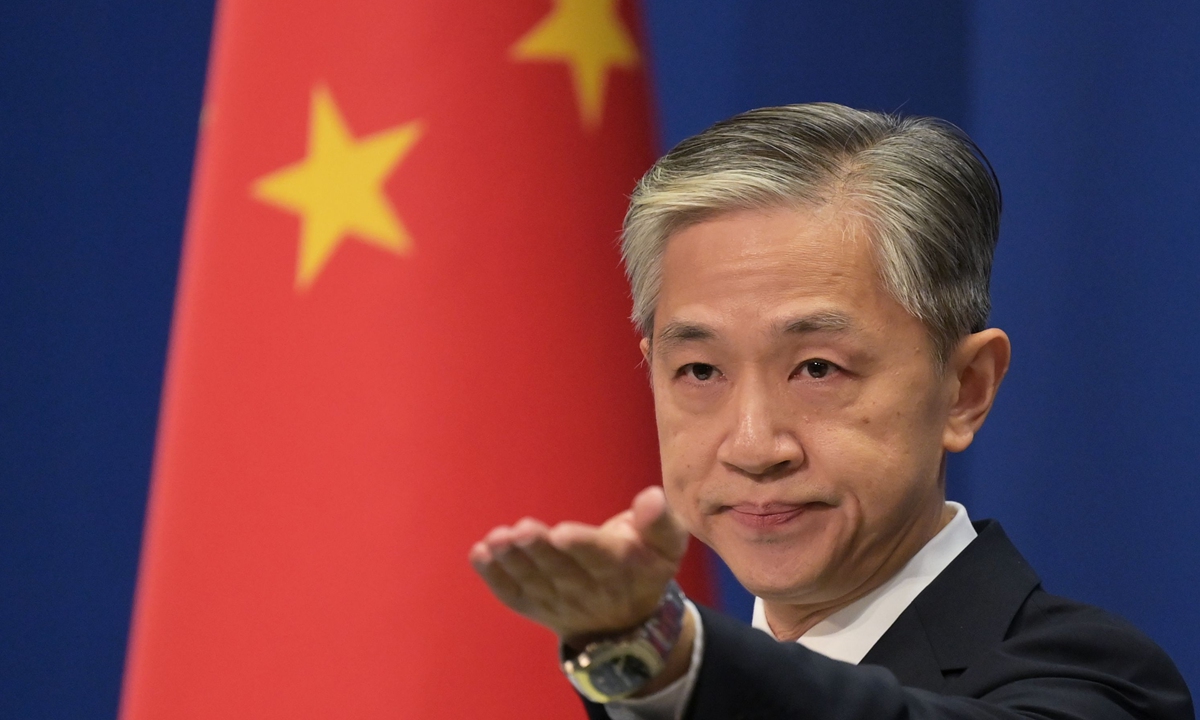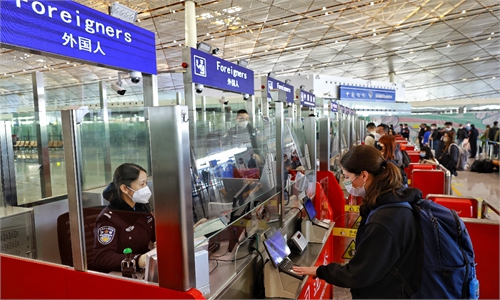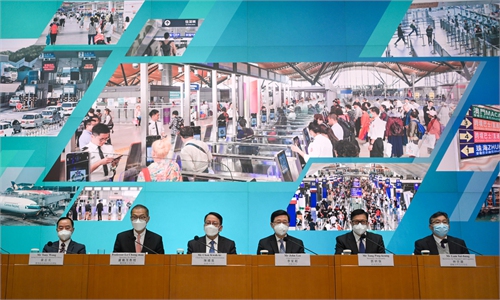China to take reciprocal countermeasures against countries imposing discriminatory entry restrictions on travelers from China: FM

Chinese Foreign Ministry Spokesperson Wang Wenbin Photo: VCG
China vows to take reciprocal countermeasures against a few countries which have imposed discriminatory entry restrictions on travelers from China, and urges the US to be transparent and open in sharing information and data on the currently prevalent Omicron XBB variant in the US, China's Foreign Ministry spokesperson said during a press briefing on Monday.
China downgraded its COVID-19 management measures from Class A to Class B and resumed cross-border travel and business starting from Sunday. However, a few countries, including the US, insisted on discriminatory entry restrictions against travelers from China. In response to that, Chinese Foreign Ministry spokesperson Wang Wenbin said during the Monday briefing that China will take countermeasures and urged the US to be transparent and open in sharing information and data on the currently prevalent Omicron XBB variant in the US with the WHO and the international community for effective measures to be taken to prevent further spread of the epidemic.
According to Wang, many countries expressed their welcome after China started to implement the Class B management of COVID-19 and optimized the management of personnel exchanges between China and foreign countries, whereas a few countries announced their entry restrictions on travelers from China.
With the utmost sincerity and a practical and realistic attitude, China has fully communicated with relevant countries and elaborated on the scientific and rational nature of China's measures to optimize and adjust epidemic prevention, as well as the current situation in China, Wang said.
"Regrettably, however, a few countries still insist on discriminatory entry restrictions against China despite of science and facts. China firmly opposes this and will take reciprocal measures," Wang said, noting that China once again advocates all parties to proceed from facts, formulate epidemic prevention measures in a scientific and appropriate manner, and avoid politicizing epidemic prevention.
China is ready to stay in close communication with all parties, optimize and adjust epidemic prevention measures based on the timing and situation, and jointly contribute to facilitating people-to-people exchanges between China and other countries, as well as promoting solidarity in the fight against COVID-19 and boosting global economic recovery.
In regards with the US where Omicron XBB.1.5 is currently rapidly replacing BQ1.1 as the prevalent strain, Wang pointed out that nearly all kinds of variants, strains and subvariants of COVID-19 have already prevailed in the US. The US is one of the countries with the largest numbers of COVID-19 variants and strains.
The current XBB.1.5 variant is the fastest rising strain in the US, causing more than 40 percent of infections in the country, according to Wang.
The US should share information and data on its epidemic situation with the WHO and the international community in a timely and open manner, and take effective measures to prevent further spread of the epidemic, Wang said.
Meanwhile, the foreign ministries of overseas countries including Germany, Belgium and Luxembourg have advised their citizens against non-essential travel to China due to the surging infections in China.
In response to that, Wang said during the Monday briefing that China has always placed people and people's lives first, with its rates of severe illness and mortality of COVID-19 remaining among the lowest in the world.
China had been prepared for fighting the battle due to the apparently reduced pathogenicity and virulence of Omicron variant and the continuously rising capacities in Chinese medical treatment, pathogen detection and vaccination level.
Wang pointed out that China has always been committed to sharing information on virus mutation monitoring and infected populations with the international community in a timely, open and transparent manner. Over the past three years, China has conducted more than 60 technical exchanges with the WHO, including four over the past month. China also continues to share viral genetic data on new infections via the Global Initiative on Sharing Avian Influenza Data (GISAID).
Global Times


